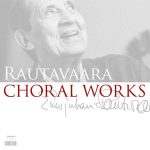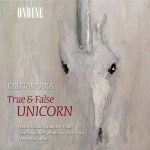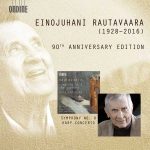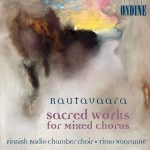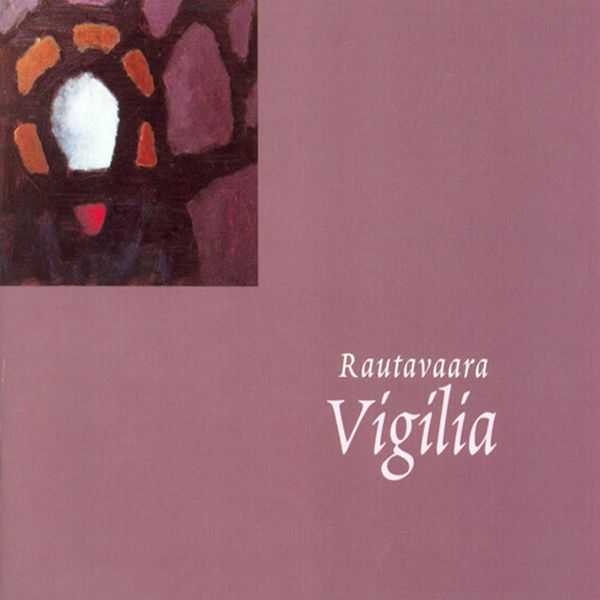
Composer: Einojuhani Rautavaara
Performer: Lilli Paasikivi, Topi Lehtipuu, Jyrki Korhonen, Pia Freund, Petteri Salomaa, Finnish Radio Chamber Choir
Conductor: Timo Nuoranne
Format: FLAC (tracks)
Label: Ondine
Catalogue: ODE910-2
Release: 1998
Size: 271 MB
Recovery: +3%
Scan: cover
Vigilia
Vespers
01. —
02. Psalm 103
03. Katisma No. 1
04. Psalm of Invocation
05. Sticheron of Invocation
06. Sticheron to the Mother of God
07. Evening Hymn
08. Ekteniya
09. Sticheron of the Litany
10. Ekteniya of the Litany
11. Sticheron
12. Troparion
13. Troparion of the Feast
14. Final Blessing
Matins
15. —
16. Troparion
17. Troparion No. 2
18. Hymn of Praise
19. Troparion of the Resurrection
20. Antiphon
21. Prokeimenon
22. Hymn of Resurrection
23. Canon: Irmos No. 1
24. Canon: Irmos No. 3
25. Canon: Irmos No. 4
26. Canon: Irmos No. 5
27. Canon: Irmos No. 6
28. Canon: Irmos No. 7
29. Canon: Irmos No. 8
30. Katabasis: Hymn of Thanksgiving of the Mother of God
31. Canon: Irmos No. 9
32. Sticheron of Thanksgiving
33. Troparion of the Resurrection
34. Final Blessing
Vigilia is a great religious work, inspired by Finnish Orthodoxy, for mixed choir and vocal soloists, written by Einojuhani Rautavaara in 1971. The work was originally written for the Helsinki Festival and the Finnish Orthodox Church, and it was first performed at a ceremony dedicated to Saint John Chrysostom. This is the revised 1997 version, altered slightly for use in concert halls and sung in Finnish – the composer has also made a few translations for foreign choirs. The musical style of this intriguing work borrows from countless sources: from old Byzantium to the 20th century as well as neo-classicism, neo-romanticism, minimalism and a few sallies into whispering or micro-intervals along the way. The only school that is deliberately left out is serialism, which Rautavaara tried out for a while before discarding it and never looking back. The notable influences or inspirations at work here include Bartók, Stravinski, Messiaen, Janáček, Britten and Steve Reich, but ultimately this work is 100% Rautavaara, a subtle mixture of ancient and modern (Nordic and universal). The Finnish Radio Chamber Choir and its soloists, conducted by Timo Nuoranne, plunge wholeheartedly into this work, which one only has to hear to recognise its proximity to the Divine Liturgies of Saint John Chrysostom produced by Rachmaninov, Tchaikovsky, or Rimsky-Korsakov.
